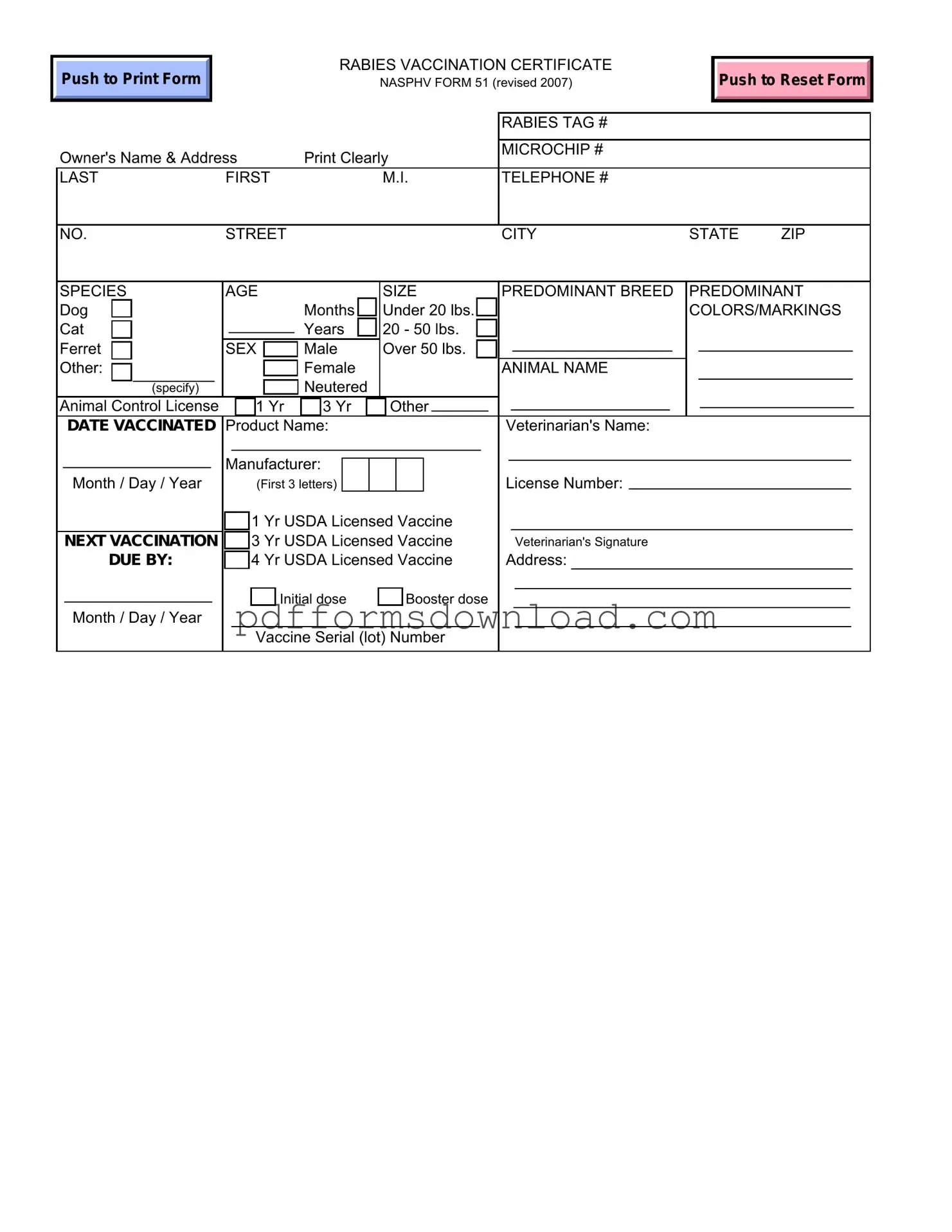Download Rabies Certificate Template
The Rabies Vaccination Certificate is an essential document that verifies an animal's vaccination against rabies. It includes important information such as the owner's details, the animal's characteristics, and vaccination history. Ensuring that this form is filled out accurately is crucial for compliance with health regulations.
To complete the process, please fill out the form by clicking the button below.
Make This Document Now

Download Rabies Certificate Template
Make This Document Now

Make This Document Now
or
Free PDF File
Your form is almost ready
Complete your Rabies Certificate online — edit, save, and download easily.